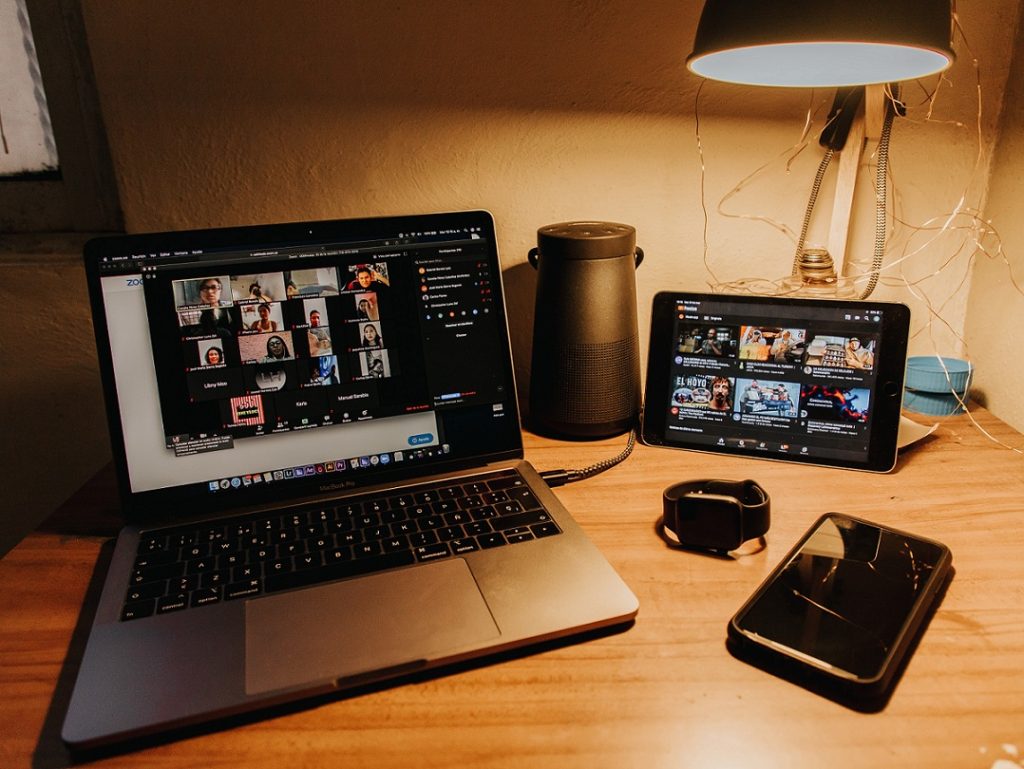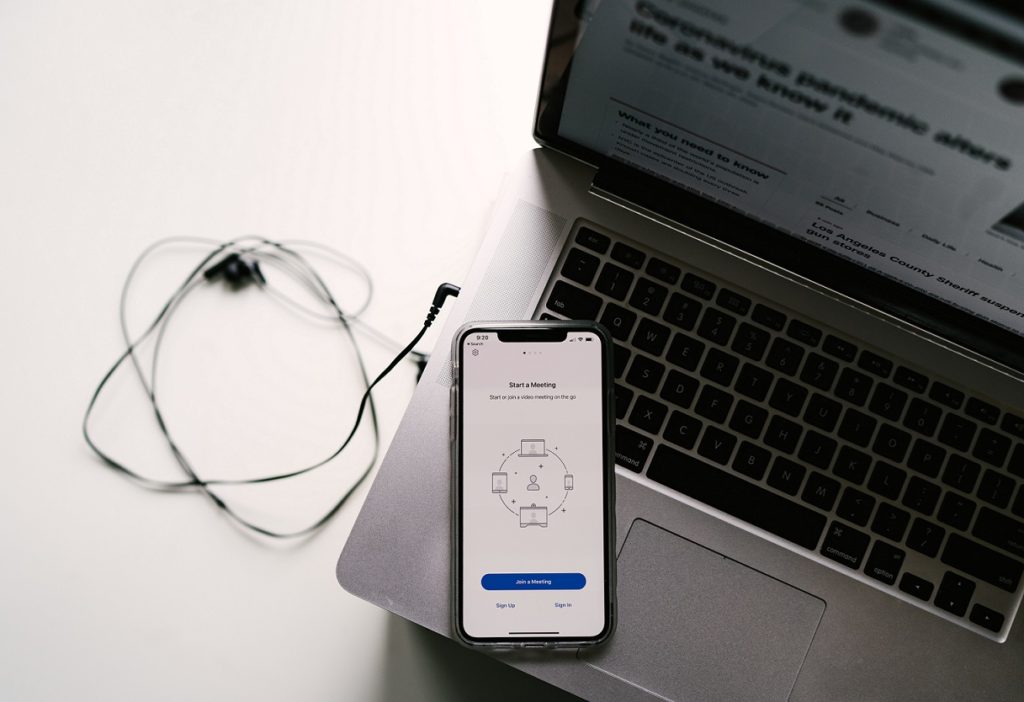In the previous article, we discussed the advantages and disadvantages to working from home. In a remote work setup, it is important to establish a fixed time and place for you to work. But there are more things that we need to take into account: communication and security. These are the additional lessons I learned while working remotely since 2012.
Communication is a high priority
My boss always emphasized that communication is the most important thing especially in the context of working remotely. If we are not able to communicate effectively, then the whole setup will fail.
The recent years have become more conducive to remote work. Internet access is available almost anywhere, from your home Wi-Fi to a service offered by an establishment. Some people prefer to work in coffee shops to simulate an office environment and to get free internet connection. Some people, like me, can’t work optimally with background noise and so prefer to work inside the house.
Mobile hotspots/tethering is also a godsend. I use this whenever I am outside the house so I can still get work done in my laptop. The additional cost of mobile data and the availability of a mobile signal is something to consider though.
Even if you have an internet connection, it is not enough. The connection needs to be both stable and fast. While you don’t need a super crazy and expensive internet plan, you need to make sure that you are able to communicate with your workmates.

Some of the main communication channels in remote work are emails, messaging applications (Slack, Discord, etc), and video conferencing services. If your work requires you to be on a video conference regularly, then you will need to adjust your internet plan so that videos and audio are reliably streamed. Lagging or stuttering are common issues encountered when your internet bandwidth is insufficient.
This is especially important if you are viewing an online presentation or doing a presentation yourself via video conference. Any lags or disruption in communication negatively impacts your work and your peers.
Secure your work machine
When you are working from home, there is a tendency to be lax when it comes to securing your work space. You may think that this is fine as there aren’t much people coming into your house. However, this is faulty thinking that could lead to a security incident.
Maintain separation in work and home computers. If you were provided a company laptop to use for work, use that machine only for work-related activities. Ideally you need to have a separate computer for work and another one for personal use. Co-mingling them could potentially lead to an unintended data leak. When this happens, documents or sensitive information may be shared to outside of your company. If you are unable to use a separate computer, set up your own user account in your machine for limited personal use.
Another big reason why you need to separate your work computer from your personal one is when you are doing personal projects. At the worst case, if your company finds out that you are using your work computer to do side projects, then the company could demand that they legally own your personal work. They can argue that the work was done using company property and during work hours.
Lock your computer when you are out of your desk. This is already standard procedure in offices, but you may forget it when you are working from home. It is not that your spouse or child could get sensitive information from your work and compromise your company. We want to avoid an edge-case scenario wherein a visitor accesses your computer and gains confidential information. Even your small child can accidentally hit some keys in your keyboard, resulting in data loss. To automate this, set your computer to automatically lock after a few minutes of inactivity.
Protect work-related data
Scan your computer regularly. Companies who incorporate remote working effectively will provide an antivirus program in all company computers. More often than not it also includes remote monitoring capabilities, allowing your system administrators to detect any computers at risk and respond accordingly. If your company does not provide an antivirus program, set up your own using software from a reputable provider. As much as possible, stick to antivirus programs shipped with your Operating System. For example, Windows provides Windows Defender for free. Some antivirus programs created by other companies may contain spyware and do more harm than good.
Store confidential documents properly. In addition to preventing strangers from accessing sensitive information, we also want to prevent accidents at home that could result to information loss. Some examples of this include liquid spilling over your project documents, important papers being thrown in the trash, or losing and damaging external drives. To avoid this, store all paper documents in a sturdy storage container such as a cabinet. For electronic documents, use encryption if possible and/or require a password when opening the document.

Use your mobile hotspot instead of free public WiFi. Now that “Free WiFi” is becoming more ubiquitous, we are exposed to greater danger than before. There are many ways that hackers and malicious agents can determine your internet activity and potentially get your username and password for websites that you visit. As such, it is very important that we avoid using public WiFi whenever we are doing work. Instead, use the mobile data in your mobile device and enable its hotspot/tethering feature.
Make use of your additional time
One of the things that I do not miss back when I am still working at an office is the commute. It took me 2 to 4 hours per day going to work and back home, depending on the severity of the traffic. When I arrive home late at night, I am already tired due to the commute and can’t really do much else in the evening.
Now that I am working from home full-time, that means I have an additional 2 to 4 hours per day not traveling outside. This is a golden opportunity to finally make productive use of the time that has been freed up. Ultimately it is your choice on how you will spend that time. You can use it to watch Netflix, play games, or watch movies at home. However, as time is our best non-renewable resource, this can be better put to use doing other activities.
Do you have personal projects that you always feel like you don’t have enough time to do? Are you targeting to learn a new skill so that you will be more competitive at work? Do you yearn to improve your family relationships at home? All of these are productive ways on how to use the freed-up time from commuting.
Cherish the advantages
Even with some of its disadvantages, working from home is a really great experience for me. Everyday I am reminded on how lucky I am to be able to generate income while in the relative safety and comfort of my home.
As this is not possible for everyone, those of us who are working remotely should maintain an attitude of gratitude. When my daughter was born and while she is growing up, I am grateful that I was given the chance to work from home. I was able to spend time with her far more than I would have if I had been working outside at an office.
We should look forward to seeing more companies embrace a work from home setup. If done properly, it will still keep the same level of productivity (often more) but increases the quality of life for the employees. For the company, it can translate to reduced expenses and the ability to hire talented people from all corners of the world.